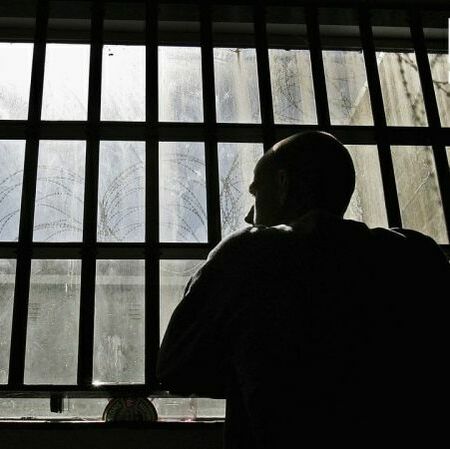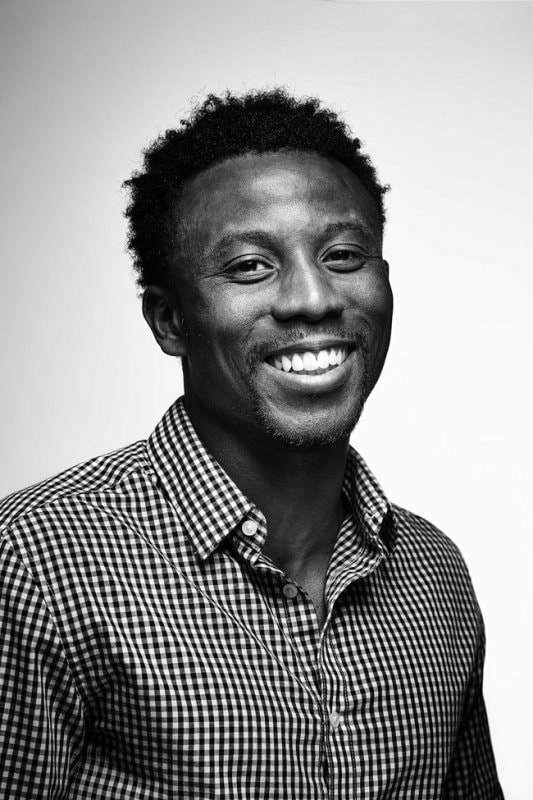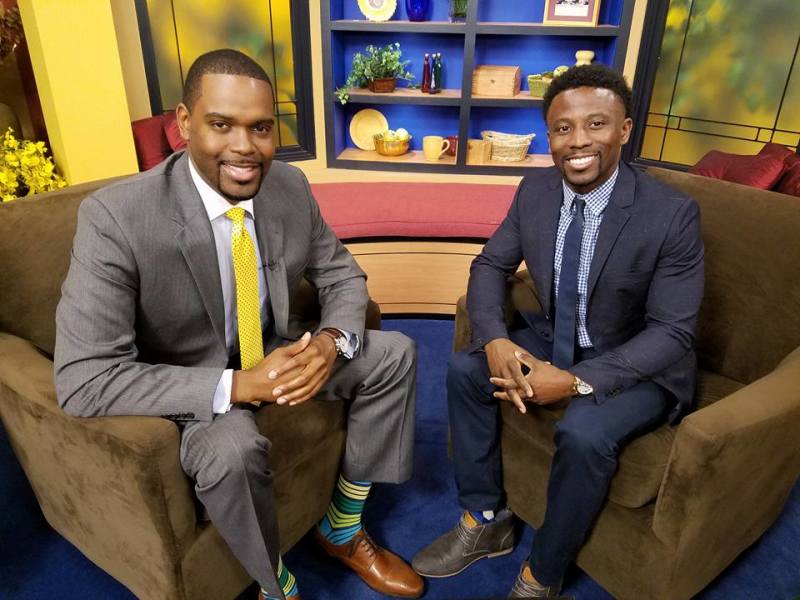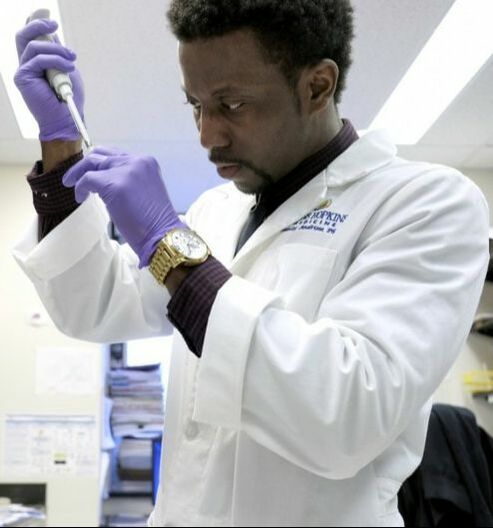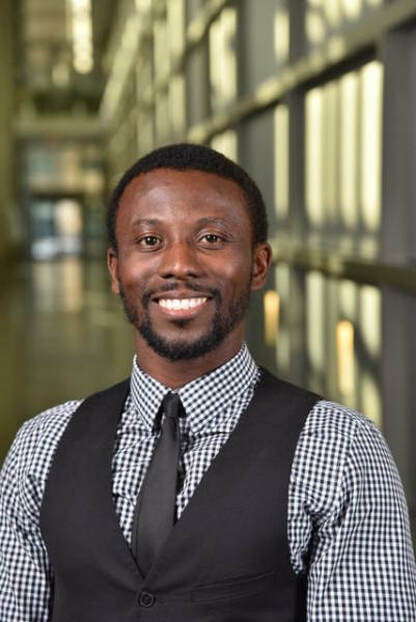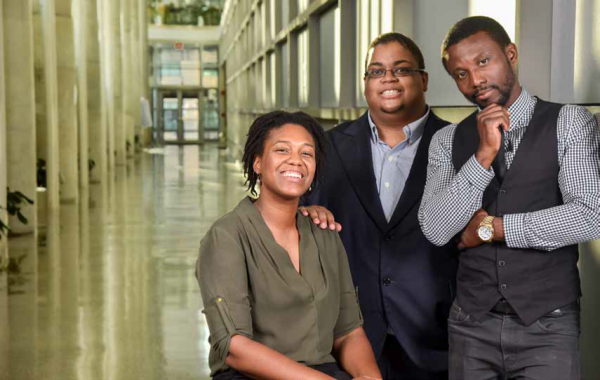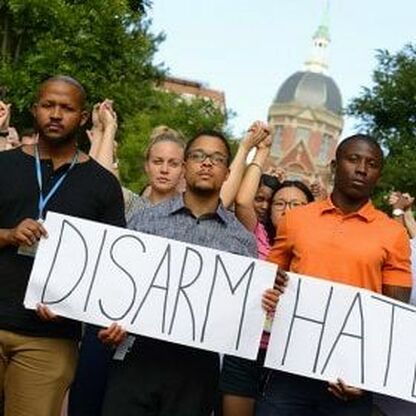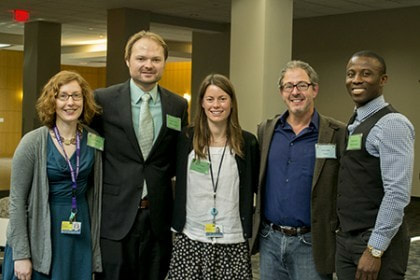Moving from prison to a PhD: Nature spoke to three US researchers who have built academic careers after they were released. Nature.
By: Virginia Gewin, October 31, 2019
It's time for Congress to lift the ban on Pell Grants for people in prison. The Hill.
By: Sec. John Wetzel and Dr. Stan Andrisse; October 2019
After Prison, Education Equals Opportunity: A formerly incarcerated person shares his story of earning a Ph.D.
Becoming a professor, and advocating for reforms that support successful re-entry. Tufts University Press.
By Laura Ferguson; October 8, 2019
TUPIT hosts 2nd annual symposium. Tufts Daily Beast.
By: ELLI SOL STRICH; October 4, 2019
Prison-to-Professionals: Investing in Potential. Culture of Health.
By Robert Wood Johnson Foundation; July 15, 2019
Education is transformative: Washington University Prison Education Project presents first Commencement. WashU.
By Joe Angeles and Liam Otten May 28, 2019
Stories that made The Conversation unique in 2018. Asoociated Press.
Maria Balinska; January 1, 2019
Harvard EdCast: From Prison to PhD: Stanley Andrisse, director of From Prison Cell to Ph.D.
Discusses the school-to-prison pipeline and how higher education can transform the lives of formerly incarcerated people. Harvard University Press.
December 2018
Building Momentum Behind Prison Education: Inside the Trump administration
Question is not whether to move forward with an experiment reinstating Pell Grants for incarcerated students, but how to evaluate its success. Inside Higher Education.
By Andrew Kreighbaum; August 29, 2018
By Andrew Kreighbaum; August 29, 2018
He Went From Prison to Earning His Ph.D. Now He’s Helping Others Do the Same.
This professor went from serving time to teaching future doctors, and now he's advocating to make education more accessible to others with criminal records. The Daily Beast.
By: Stan Andrisse; August 2019
By: Stan Andrisse; August 2019
Ban the Box on College Applications.
By Stan Andrisse; October 2017
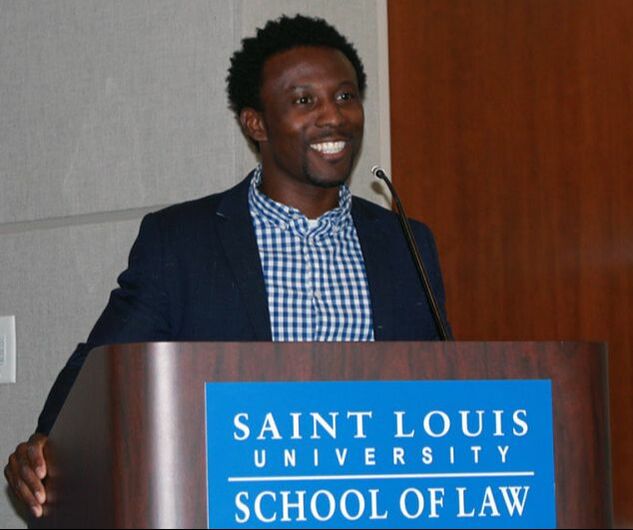
Stanley Andrisse, Ph.D. (A&S Grad '14), speaks at the School of Law Thursday, Oct. 12, at "From Prison Cells to Ph.D.," co-sponsored by the Legal Clinics, Doisy College's Department of Occupational Science and Occupational Therapy, and the College for Public Health and Social Justice's social work program. Photo by Maria Tsikalas
|
SLU Alumnus Shares Message of Resilience, Success and the Power of MentorsBy: SLU Law, October 13, 2017
He is an adjunct assistant professor at John Hopkins School of Medicine and recently accepted a tenure-track assistant professorship at Howard College of Medicine. Inspired by his father who died of complications from Type 2 diabetes, the Ferguson, Mo.-native is doing research on diabetes.
You would never know that Andrisse, who also has an MBA, has multiple felony convictions on his record and served nearly three years in prison on drug trafficking charges. |
Rally demands equal access to college for ex-convictsBy: Trisha Parayil, JH-Newsletter, October 12, 2017
Members of the Hopkins and Baltimore community rallied to voice their support for banning the box in college admissions. The “Ban the Box” movement includes a nationwide effort to prevent universities from asking prospective students to disclose their criminal histories in their college applications.
Stanley Andrisse, an adjunct assistant professor at the School of Medicine, spoke at the rally about the impact that education had on his life after prison. After obtaining his doctorate, Andrisse began working to help others ... overcome educational barriers. |
Louisiana Limits Public Colleges from Asking About Criminal HistoryBy: Robert Newhouse, Teen Vogue, October 5, 2017
Louisiana Governor John Bel Edwards signed into law House Bill 688, a bill that limits public colleges from asking applicants to provide their criminal records during the application process.
Stanley Andrisse, who was incarcerated on drug charges before earning a PhD and MBA and becoming a tenure-track Assistant Professor at Howard University's School of Medicine, spoke to Teen Vogue regarding his support of Maryland's version of "ban the box." |
This Former Inmate Is Pursuing Her PhD After Serving 20 Years in PrisonBy: Lily Herman, Teen Vogue, September 14, 2017
Jones isn't the first former inmate to pursue a degree, including a post-Bachelor's one. Stanley Andrisse received his PhD from St. Louis University and is now a popular researcher at Johns Hopkins School of Medicine. "That is my hope that someone watching this will understand that everyone deserves a second chance," Stanley told WMAR in May. "Everyone deserves the opportunity at obtaining an education. Society is missing out on talent."
|
From prison cells to PhD, Dr. Stanley Andrisse shares his transformation to inspire those impacted by the criminal justice system.By: Jessica Yo, STL Magazine, June 15, 2017
"Education for me has been the biggest balancer to offset my criminal convictions. Education broadens horizons, tears down fences, and leads to career building. It has helped me build my personal and professional support network."
|
How a “career criminal” became a career scientistBy: Jeanette Cooperman, STL Magazine, June 15, 2017
As the Ban the Box movement gathers momentum, Stanley Andrisse's voice is starting to carry.
A Maryland senator was holding forth in a committee hearing. Ban the box? Prevent companies from learning that a job applicant was an ex-con? “What if there’s this bigtime drug dealer who now wants to work for a pharmaceutical company?” he expostulated. And then Stanley Andrisse stood up. A three-time drug felon from Ferguson with an MBA and a Ph.D. in physiology, he was doing a postdoc fellowship in endocrinology at The Johns Hopkins University School of Medicine—and applying for jobs at pharmaceutical companies. Andrisse is smart and incredibly personable—and those are “transferable skills,” as he regularly reminds young drug dealers. Nowadays, people in power urge him to speak out. |
Dr. Stanley Andrisse, a three-time convicted felon, talks about the challenges of overcoming a criminal record.By: Marcus Washington, CBS On Time, May 14, 2017
|

Stanley Andrisse and his family on his undergraduate graduation day, just days before being sent away for incarceration. "I graduated and almost immediately after I graduated, I went off to prison," he said. "It was devastating. I had these seemingly kind of good things going on, but then I'm a two-time convicted drug felon, and I'm sitting in prison."
|
From Prison to PhD: One man's second chanceBy: Kelly Swoope, ABC2, May 12, 2017
Stanley Andrisse knows his science. He's a well-respected researcher at Johns Hopkins School of Medicine. He's got two sets of letters behind his name, MBA and PhD, and those credentials didn't come easily. "I got involved in making decisions that weren't the greates," he said. Andrisse is proof you can't judge a book by its cover.
Andrisse was sentenced to 10 years on drug trafficking charges and expected to serve 66 percent of that time. While he was away his father's Type 2 diabetes got worse. His limbs had to be amputated. His father's loss spurred him to action. "That was extremely difficult to sit in my little cell and be helpless to coping with my family," he said. "My dad has given me the motivation and inspiration to study diabetes." |
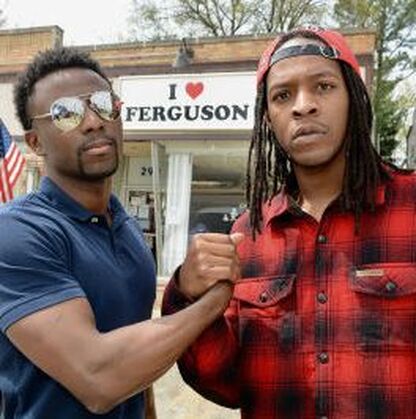
Photo by Wiley Price / St. Louis American
Ferguson native Stan Andrisse (left) and his friend, Jerry Moore III of St. Louis want to remove the stigma of persons who have been incarcerated. With the support of a former Saint Louis University professor, upon release from prison Andrisse earned advanced degrees at Saint Louis University and is now a postdoctoral fellow and endocrinologist at Johns Hopkins University in Maryland.
|
Ex-felon turned endocrinologist wants to ‘Ban the Box’ on college applicationsBy: Sandra Jordan, STL American, May 3, 2017
Whether it is the Common Application, used by several hundred colleges and universities in the U.S., or one of their own, most applications for higher education ask about a history of incarceration.
For many, it is an innocuous box to check: “No.” You probably don’t think about it if you have never served time behind bars. However, if you have, you think about that box a lot. Every time you apply for a job and, in this case, every time you apply for school. “Going into something that is similar to a courtroom and testifying is not something that I am used to doing or comfortable doing,” Andrisse said. “It brought back a lot of feelings, really, to sit in that ‘courtroom’ and be recorded.” “Education for me has been the biggest balancer to offset my criminal convictions. But it's not just the letters behind my name,” he said. “Education broadens horizons, tears down fences, and leads to career building. It has helped me build my personal and professional support network.” |
State lawmakers remove criminal history from in-state college appsBy: Rachel Baye, WYPR (NPR), March 29, 2017
Stanley Andrisse is an endocrinology post-doctoral fellow at Johns Hopkins University. He’s also a convicted felon.
“In my younger years, in my adolescent years, I made a number of poor decisions that eventually led to me sitting in front of a federal judge facing 20 years to life in prison for drug trafficking charges,” he told a state Senate committee last month. He was sentenced to 10 years, and after going to rehab, he was released early. When he got out, he wanted to continue his education. “I was able to build a relationship with a professor that vouched for me to get in,” Andrisse said. “He was on the board of a school that I applied to. I didn’t get into a number of them, but I got into the school that he vouched for me in.” Andrisse testified last month on a bill in the General Assembly that prevents Maryland colleges from weighing an applicant’s criminal history in undergraduate admissions decisions. The Senate passed the bill yesterday, and the House passed a version earlier this month. |
Taking a lawbreaking past out of college applicationsBy: Ovetta Wiggins, Washington Post, February 27, 2017
“I am a convicted felon,” Andrisse, now a postdoctoral fellow at Johns Hopkins School of Medicine, told Maryland lawmakers this month at a hearing on whether the state should forbid questions about criminal records on college applications. “But I am also a doctor, a scientist . . . a youth mentor, a published author and many other things. Eliminating me before you know all of these other great things is an injustice to society.”
Andrisse testified that going to graduate school was a “game-changer” for him, one that he said would have come much more easily had he not been asked about criminal convictions on his applications. |
From felon to phdBy: Janneh Johnson, Afro Baltimore, March 16, 2017
Stanley Andrisse is a 33-year-old provost post-doctoral fellow at Johns Hopkins, possessing both his MBA and PhD and participating in research about Diabetes, a disease that plagues millions, Andrisse is what most Americans would call extremely successful, and he is also an ex-felon.
“I enjoy being able to help others and it’s also therapeutic… On a day to day basis I hear so many biases and what people think of criminals and for the most part nobody knows my background so I have to just suck it up. Things come up and you have to suck it up as a convicted felon because no one really knows for the most part at your job because it may affect your being there so you kind of just don’t talk about it,” said Andrisse. “There’s a psychological part that affects you aside from the obvious things, I can’t vote, I can’t own a firearm, I have all these barriers against employment and education, there are psychological and structural barriers to deal with.” “I don’t like using (returning citizen). I chuckle but I stop you know because I don’t think we are returning citizens because we don’t have certain rights, we’re looked at as convicts, we’re looked at as criminals and we’ll continue to be looked at in that way until that stigma is broken…I think returning citizens are not what we currently are I think it would be nice to eventually be at that stage but I think right now society still sees us as ex-convicts” |
Banning the box in college admissionsBy: Morgan Ome, JHU Newsletter, March 16, 2017
Stanley Andrisse, a post doctoral fellow at the School of Medicine and former convict, testified before the state legislature in support of the bill last month. Andrisse is involved in various efforts to help former inmates returning to Baltimore lead productive lives.
He works with Aim to B’More, an initiative by the State Attorney’s Office to provide skills and training to first-time felony drug offenders. Andrisse is also a board member of Advocates for Goucher Prison Education Partnership, which gives inmates the chance to pursue a Bachelor’s degree. “The one thing I will say is that I graduated at the top of my class in the program that I was in,” he said. “The average number of years for most people to finish their Ph.D in the program is six to seven years. I finished in four.” |
Transforming the CultureBy: JHU Diversity Annual Report (page 10), 2017
DPAC, a subcommittee of the Johns Hopkins Postdoctoral Association, centers on research, mentoring/networking and
professional development [see sidebar]. Programs range from a trainee welcome event to collaborating with the Johns Hopkins Office of the Provost on the first-ever universitywide Postdoctoral Diversity Fellowship program. |
Rally Supports Immigrants and RefugeesBy: Karen Nitkin, Inside Hopkins, February 9, 2017
President’s executive order prompts protests at Johns Hopkins and other colleges and universities. About 200 students, staff members and faculty members, some carrying signs and some wearing down jackets over their white coats, gathered outside The Johns Hopkins Hospital in bitter cold and wind yesterday for a rally supporting immigrants and refugees.
“Diversity gives us strength,” said Stanley Andrisse, postdoctoral fellow in pediatric endocrinology, speaking for himself and the Diversity Postdoctoral Alliance Committee he co-chairs. “It provides new thinking and new vantage points. If we start diminishing this diversity, science and society lose.” |
Vigil on Johns Hopkins' East Baltimore campus brings healing, hopeBy: Saralyn Lyons, JHU HUB, July 13, 2016
Vigil and moment of silence to honor the victims of the Orlando nightclub shooting that left 49 people dead last month; Alton Sterling and Philando Castile, two black men who were shot and killed last week by police officers; and the five Dallas officers who were fatally shot by a gunman during a protest rally last week.
"When these things happen, they take from you," said postdoctoral fellow Marc Edwards. "They take from you your time, your energy, your sanity, your hope. And these events are iterative: they happen again and again, and sometimes back to back. ... It necessarily saps you of your energy and the resources you need to succeed. I am most grateful for the fellowship—the community of people who are going through the same thing—and that we can draw strength from each other. It fills me back up." |
Researchers must help others see value of research, speakers tell JHU postdocsBy: JHU HUB, May 31, 2016
"We want to get the postdocs together to not only showcase their talents and broaden their knowledge, but equally as important, we want to get them together to build relationships and have fun," said Stanley Andrisse, co-president of the Johns Hopkins Postdoctoral Association and a postdoctoral fellow in pediatric endocrinology.
|




